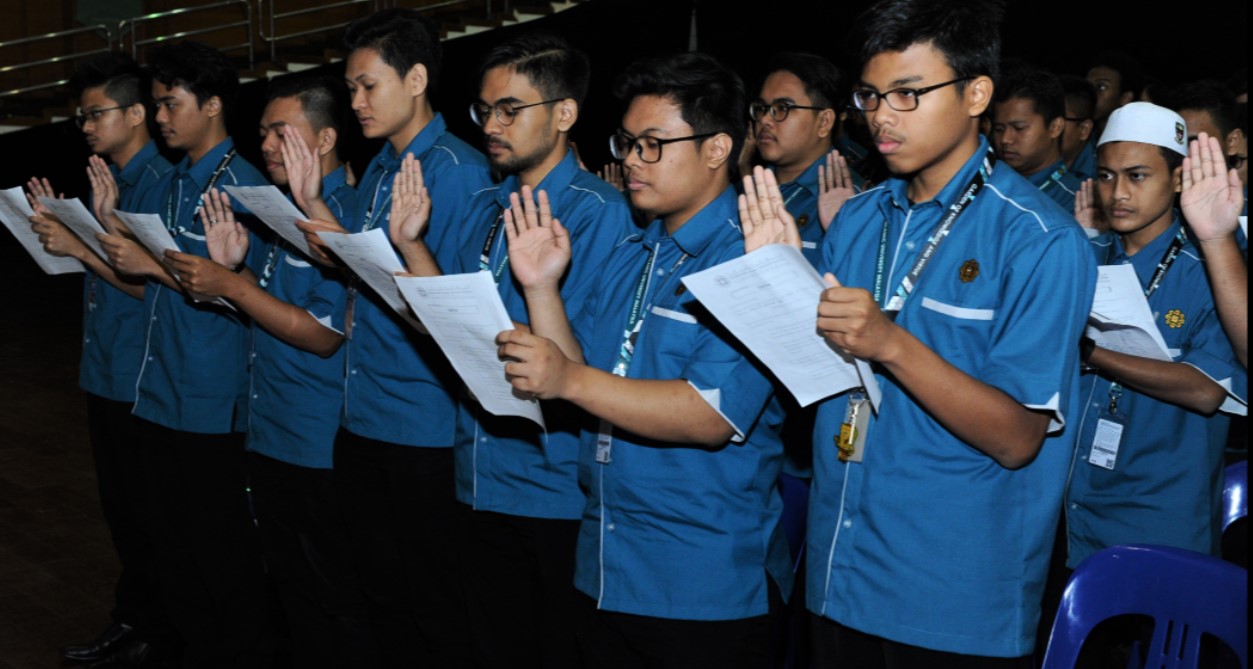By Norasikin Basir
Imagine on one fine day, we wake up from sleep only to find out that we are living alone without other healthy human beings to interact with, except those creepy zombies whose lives are about surviving in a world full of injustices and unfairness.
What do we do? How do we perceive the situation? Will we be joining them? Will we be avoiding them while taking care only of ourselves? Or do we find ways to ameliorate the undesirable condition so people can know each other and live a life?
An essential reference in understanding human beings and social relations is mentioned in Al Quran in Surah Al-Hujurat:13 that reads,
œO mankind, indeed, We have created you from male and female and made you peoples and tribes that you may know one another. Indeed, the noblest of you in the sight of Allah is the most righteous of you. Indeed, Allah is Knowing and Acquainted.
The above scenario and verse indicate the essentiality of interactions if we are to live together as human beings. Indeed, we are purposely created by Allah heterogeneously, so we will try to find a good tune amongst us to live in togetherness.
Sociology was introduced by Ibn Khaldun in his book Al-Muqaddimah (1377) and Auguste Comte in his work Cours de philosophie positive (1830). Comte even regarded it as the crown of science as it discussed mainly all aspects of human society and social behaviour, social relationships and interactions.
Sociology has been described by many scholars in varying ways. Generally, it is best described as the scientific study of society, its collective behaviour, and social groups based on social interactions.
Anthropology, another discipline that focused on studying human society, past and present, also factored in the cultural, biological, and historical aspects of being human. Both sociology and anthropology assume that human beings must be social beings in order to be complete.
In the academic world, sociology and anthropology are taught at the tertiary level in colleges and universities. In Malaysia, sociology and anthropology courses are offered in numerous universities such as University of Malaya (UM), Universiti Kebangsaan Malaysia (UKM), Universiti Sains Malaysia (USM), Universiti Malaysia Sarawak (UNIMAS), and International Islamic University Malaysia (IIUM).
However, unlike other universities, apart from understanding human society and its interaction, the teaching of sociology and anthropology at IIUM raises students awareness and consciousness about the society they live in. This awareness and knowledge constitute the essential, substratum level information for the students to know what society is and where it ought to be going in terms of the Islamic worldview.
The Department of Sociology and Anthropology was established in 1990 in the Kulliyyah of Islamic Revealed Knowledge and Human Sciences. It offers a four-year programme of studies leading to the Bachelor of Human Sciences, Honours degree in Sociology and Anthropology. It also offers an undergraduate minor in the discipline.
The Department strives to achieve its vision to be top-notch research and academic centre in integrating Islamic knowledge and scientific analysis of human societies while ensuring Maqasid Shariahs preservation and sustainable societal development.
In the interest of this vision, the Department has adopted relevant strategies to accomplish its missions in developing itself as an excellent hub of sociological and anthropological learning, centred in the teaching, research, publication, and community engagement, imbued with Islamic values and principles.
The Department aims to train graduates competent in sociology and anthropology imbued with Islamic values and be critical, analytical, and creative in thinking skills. Students who graduate from the Department are expected to experience a rigorous curriculum involving methodological, theoretical, experiential, and substantive training to enhance critical thinking, social awareness, and global understanding of human social reality.
After 30 years of its establishment, the Department has proven that despite its lack of popularity among students due to the absence of exposure at schools, unlike other courses, students registering in the Department has multiplied 10 to 12 times after the first year of its establishment.
The Department has many scholars contributing in many different areas such as on the issues of Dakwah Orang Asli (cooperation with Majlis Agama Islam dan Adat Istiadat Melayu Kelantan or MAIK), as panellists in the eradication of urban poverty programme in Kuala Lumpur (organised by the Ministry of Federal Territories), consultancy for the projects of Laskar Alam (cooperation with Majlis Agama Islam dan Adat Melayu Terengganu or MAIDAM), to name a few.
In the next five years, the Department plans to reinvigorate anthropological research activities, focusing on the community development of the aboriginal communities in Pahang and Perak. The long-term research activities that will be conducted will benefit students academic growth over time and the aboriginal communities under study.
The Department is also working on publishing a textbook on the Islamic context of various fields of study in sociology and anthropology.***
(The writer, Dr. Norasikin Basir, is Assistant Professor and Head in the Department of Sociology and Anthropology, Kulliyyah of Islamic Revealed Knowledge and Human Sciences)
